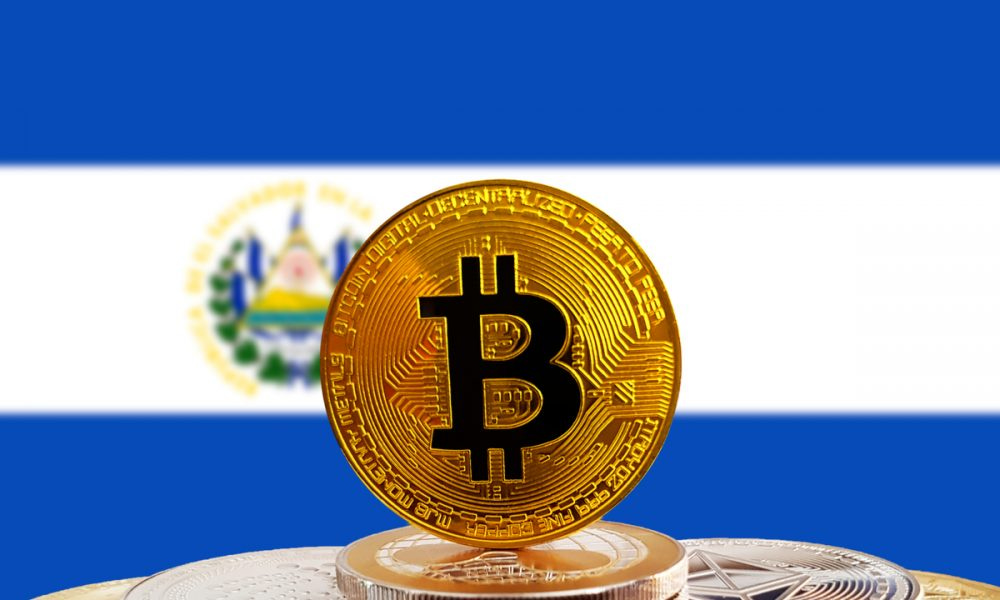In a rush? No worries! The most important bits are in bold. Skim ahead!
At this summer’s Bitcoin Conference in Miami, Florida, the president of El Salvador, Nayib Bukele, made a revolutionary announcement: Bitcoin was going to become legal tender, joining the U.S. Dollar which has been in use since 2001. For the tech-savvy millennial leader, the move aimed to appeal to his younger, technologically inclined constituency, and give the 70% of Salvadorans who don’t have bank accounts, financial freedom and access to the formal economy. A day later, the Salvadoran Congress voted in favour of the Bitcoin Law.

On September 7, 90 days after the law was passed, bitcoin hit the nation’s streets, allowing people to use and accept the cryptocurrency for goods and services, just as you would with fiat money. In a push to incentivise people, the government offered all users of the new digital wallet app, Chivo (meaning ‘cool’) $30 worth of coin. But three hours after the midnight launch, the app crashed. Bukele tweeted that the app was temporarily down so that its user capacity could be increased but transactions continued to fail, service lines were overloaded and Chivo ATMs ran out of cash. Consequently, Bitcoin’s market valuation dropped by $400 and its price by 15 percent. Over 1,000 angry, confused and apprehensive Salvadorans filled the streets of the capital San Salvador for the first of several protests.
“No to Bitcoin, no to Bitcoin,” the protesters, including judges and magistrate, chanted as they held up signs with the bitcoin logo crossed out, reported The New York Times.

To them, the highly volatile and unaccountable currency might ruin their savings and bring back a negative return on investment, leading to an even more unstable economy. The distrust of Bitcoin and anger over the government’s sudden decision and rushed implementation adds to their woes about Bukele’s governing style.
“The dollar is a currency I can hold, but this — what kind of security is it going to give me?” asked Marina Pérez, a homemaker who was marching in the September 7 protest, to The New York Times. “I’m against Bitcoin, and I’m against all the government’s measures.”
On September 15, El Salvador’s Independence Day, over 15,000 protested Bukele’s presidency, from his Bitcoin policy to his removal of unfavourable Supreme Court judges who were blocking him from running for a second term. Among the protest’s victims was a Chivo ATM, graffitied and burned.
What is Bitcoin
Bitcoin, simply put, works like other electronic or card based transactions, except that it follows its own unit of value and its operations are totally decentralised, meaning transactions are processed and stored by computers within the Bitcoin network. The money is not regulated by a bank, company or governing body. Instead, transactions are publicly recorded in the blockchain, i.e. the Bitcoin computers verify and share the sender and recipient’s usernames, the amount and any other information, with the network. Hence, other Bitcoin users, or “miners”, become the regulators.
Bitcoin was drafted in 2008, by the pseudonymous Satoshi Nakamoto, as a way to “mine” virtual currency without relying on a formal institution. The Bitcoin network officially launched in 2009.
Bitcoin’s biggest selling point is that it gives users complete financial autonomy. But its value is not tied to another currency’s value (like the dollar), nor does it determine its value based on the growth in goods. Instead, the rate is determined using an algorithm that is set ahead of time. Its value also fluctuates dramatically depending on things like bad news, including geopolitical issues, its perceived value, often based on the value of fiat currencies, the store of value is unpredictable in the long-term, and online security risks.
If a nation’s currency is unstable or has a very low value, Bitcoin can be an advantageous alternative. But the coin has been linked to money laundering and in some cases, it can even be used to bypass economic sanctions.
Bitcoin’s computers are also notorious for consuming massive amounts of energy, about 105 terawatt hours annually. This is more than all the electricity used in the Philippines per year, according to the Cambridge Bitcoin Electricity Consumption Index. El Salvador says it will use a state-run geothermal unit to produce electricity for its Bitcoin mining.
That’ll be $8. Dollars or Bitcoin?
The Bitcoin Law states that as of September 7, all businesses must accept Bitcoin as payment, but can continue to accept the dollar. From mom-and-pop’s to multinational companies like McDonalds, all stores had to quickly adapt.
The government invested $30 million in bitcoin for the country and assigned the Development Bank of El Salvador, Bandesal, to handle a $150 Bitcoin trust that allows people to convert bitcoin to dollars. The trust is using part of the $500 million loan taken from the Central American Bank for Economic Integration for the economic recovery of small and medium-sized enterprises.
Ahead of the launch, cryptocurrency enthusiasts encouraged each other to buy $30 worth of coin, to hike-up the value. Even Bukele purchased another 200 coins. When the valuation crashed, Bukele’s response was to “buy the dip,” purchasing 150 more coins for the nation. “We saved a million in printed paper,” he said. On September 20, he purchased 150 more, bringing the total to about 700 coins, with a value of $31 million.
But the president’s somewhat idealistic plans are hampered by the realities faced by the Salvadoran people. Only about one third of the country uses the internet, and nearly a quarter live below the poverty line. “In my country there are many people who are illiterate and hardly have a cell phone, not an intelligent one, but one of the old ones. They will not use it,” said home delivery grocer, Jeanette Sandoval, 70, to the BBC.
Although the Bitcoin Law says the government must provide, “the necessary training and mechanisms,” to conduct Bitcoin transactions, people are not convinced. According to a survey by La Prensa Gráfica, 65% of people disapprove of Bitcoin, and 72% are not willing to accept and receive it as a form of payment when offered by someone indebted to them. Those who are happy to use bitcoin note the ease of convenience it provides with foreign remittances and believe that this new, innovative technology will boost El Salvador’s economy, especially since the coin can be converted to dollars. But the majority expressed concerns over a lack of understanding of cryptocurrency in general, and how bitcoin is meant to be used in their day-to-day lives.
According to the BBC, “a survey conducted by the Central American University (UCA) found that only 4.8% of the 1,281 people who took part understood what Bitcoin was and how it was used.” Many enjoy the stability provided by the dollar and fear that the fluctuations in Bitcoin can pose a threat to their savings and investments.


The risks of fraud and hacks that come with cryptocurrency do not outweigh the benefits. Bitcoin expert from the crypto research group, Coin Center in Washington, Jerry Brito, told The New York Times that, ‘there are “obvious contradictions” to the official adoption by a national government of a currency designed to thwart governmental control over money.” The UCA survey adds that over 68% of participants disagreed with using cryptocurrency as legal tender.
El Salvador’s political economy
Since its creation in 1892, the Salvadoran colon was pegged to the U.S. dollar, making the currency intrinsically linked to the U.S.’s economy, resulting in the Great Crash of 1929, El Salvador’s own Great Depression.
In 1931, the military launched a coup, usurping power and maintaining it until 1979. During this time, the nation left the gold standard, meaning the colon was no longer tied to the price of gold, and in 1934, the Central Reserve Bank was created. By 1973 the institution centralised all banks and became a state entity, meaning the State ran and monitored all financial services and policies.
Tensions between the politically right and left were ever-present. But in 1980, a right-wing army officer killed an archbishop, pushing the rival political factions into a decade-long bloody civil war. Under the Reagan administration, the U.S. provided the politically right Salvadoran military, with training and aid, much of which went to battalions which the UN said were, “the primary agents of war crimes.” The left guerrilla organizations would become the foundation for the nation's left polity.
A peace accord was signed in 1992, but by then, El Salvador’s economy was one of the casualties left behind. Several Salvadorans had fled to the U.S., pulling El Salvador deeper into the American currency and trade system. So to reduce interest rates and further integrate into the American and global economy, Francisco Flores of the National Republican Alliance, decided to dollarize. Furthermore, the exodus of Salvadorans to the U.S. resulted in an increase in remittances, as people sent dollars back to El Salvador.
The dollar became legal tender in 2001, and the colon was discontinued in 2004.
Institutions React
The International Monetary Fund, the World Bank, and several major private institutions like JPMorgan have expressed concern. IMF spokesman Gerry Rice said the, “adoption of bitcoin as legal tender raises a number of macroeconomic, financial, and legal issues that require very careful analysis.” Given the risks associated with cryptocurrency, he says strong regulations must be implemented. Although El Salvador plans to use renewable energy to fuel the computers, the World Bank refused to assist with implementation, citing climate and security concerns. Economists, including JPMorgan’s Joshua Younger, expressed uncertainty over whether the blockchain can actually handle a majority of El Salvador’s transactions. But others, like American cryptocurrency entrepreneur Brock Pierce, believe that aside from the current glitches in the system, the move is “historic.” He told The New York Times that, ‘it’s rare to see a government act with the spirit of “an entrepreneurial start-up.”’
That’s it for this week’s edition of Meanwhile In! If you have any feedback or comments about today’s edition please let me know- just hit reply to this email.






